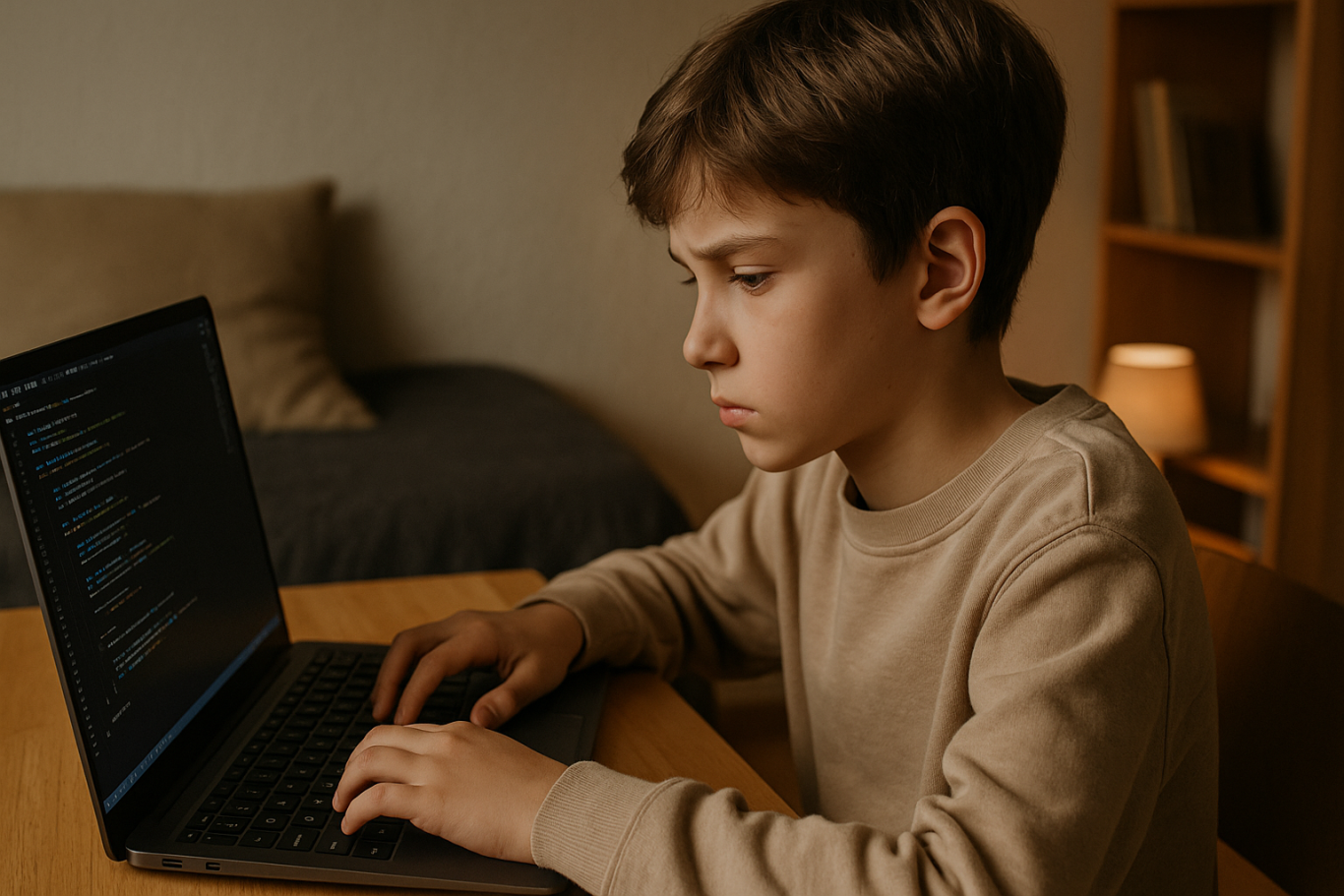How to Boost Kids Self-Confidence with Coding in 2025
Self-confidence is an important quality that needs to be developed early in every child. However, for introverted children, building self-confidence can be a unique challenge. Introverted children tend to be quieter, enjoy spending time alone, and may feel awkward in social situations. One effective way to boost children’s self-confidence is through coding activities. This article will discuss how coding can serve as a supportive medium for the development of introverted children, while also providing tips on how to boost kids self-confidence in general.
Understanding Introverted Children and Their Self-Confidence Challenges

Introverted children usually prefer to engage in activities alone or in small groups, and they enjoy quiet time to think and create. In larger social environments, they might feel uncomfortable or find it difficult to express themselves, which can affect their self-confidence.
How to boost kids self-confidence in introverted kids does not mean forcing them to become extroverted, but helping them find ways to feel comfortable and believe in their own abilities. This is where coding can be a very useful tool.
Coding as a Medium to Build Self-Confidence in Introverted Children

Coding is an activity that allows children to learn and create in a controlled and pressure-free environment. Here are some ways coding can help parents apply methods on how to boost kids self-confidence:
1. A Creative Space for Self-Expression
Coding gives children the chance to turn their ideas and imagination into tangible forms such as games, animations, or simple applications. Introverted children who may struggle to express themselves verbally can channel their creativity through coding. Seeing the results of their own work is very satisfying and boosts self-confidence.
2. Project-Based Learning with Clear Goals
In coding, children learn through clear, measurable projects. Every successful coding step makes the child feel a real sense of achievement. This process builds the belief that they can overcome challenges and solve problems, which is an important part of how to boost kids self-confidence.
3. Focus on Individual Skills
Coding allows introverted children to work independently with a focus on problem-solving. Without excessive social pressure, they can learn and grow in their own way. This strengthens self-confidence because the child knows they can succeed without following group pressure. This independence is key in how to boost kids self-confidence.
4. A Supportive Learning Environment
Child-friendly coding platforms and small communities let introverted children feel safe and accepted. They can interact according to their ability and comfort without feeling burdened by high social expectations.
General Ways to Boost Children’s Self-Confidence

Besides using coding as a medium, there are other alternatives parents and educators can do as ways on how to boost kids self-confidence, especially for introverted children:
1. Recognize and Appreciate the Child’s Uniqueness
Every child is different, and it is important to accept their character without forcing changes. Appreciating a child’s uniqueness helps them feel accepted and confident being themselves.
2. Give Positive Support and Appreciation
Sincere praise for a child’s effort and achievements can boost motivation and self-confidence. Focus on the learning process, not just the final results.
3. Encourage the Child to Take Appropriate Risks
Let children try new things in a safe environment. Experiences of successfully overcoming challenges will build their self-confidence and are practical examples of how to boost kids self-confidence.
4. Practice Social Skills Gradually
Help introverted children practice interacting in comfortable and controlled social situations. For example, joining a small club or activities that match their interests.
5. Be a Good Role Model
Parents who demonstrate confident and positive attitudes will serve as examples for children to imitate.
Supporting Children with Fun Coding Programs
To maximize the benefits of coding as a way on how to boost kids self-confidence, choose coding programs designed specifically for kids with fun and easy-to-understand methods. Timedoor Academy is one program that offers this kind of approach.
Timedoor Academy provides coding classes tailored to the child’s age and ability, supporting learning in an interactive and enthusiastic way. Parents can also feel assured because the learning methods are very friendly, even for introverted children.

Ingin tahu detail program?
Moreover, Timedoor Academy offers a free trial class so children and parents can try coding lessons without any commitment. This gives children the chance to experience fun coding activities that support the development of their self-confidence and demonstrate effective ways on how to boost kids self-confidence.